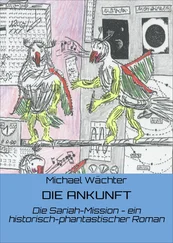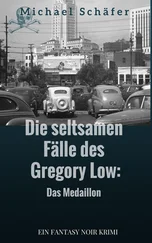To cheer himself up he practiced pulling prints from difficult places like the toilet bowl and some trim in London. Then he stood on a chair and pulled one from the light fixture in New York: large prints that weren’t his own, yet looked oddly familiar. He compared them with the small library he’d amassed so far in a photo album, prints belonging to the mailman (doorknob), the grocery deliveryman (milk bottle), his mother (glass of water beside her bed), and now Titus (from the prints Jonah had given him), which matched exactly those he’d pulled from the fixture. Will recompared the prints ten times in tingly disbelief, but there was no question they were the same.
Titus had been in his room.
It was concussive, thunderous, his two worlds colliding like brakeless trains — the Inside and the Outside — and in the great crash Will knew that he’d been wrong about everything. Jonah was right, Titus had done something to Marcus in one of his black moods, and concocted that story to cover it up. And Will and his mother were next. Titus had been watching them from the yard for months, maybe longer, peering at them through the windows, writing that note, but now he’d come Inside, and any night he’d creep up on their beds and grip their throats. With horror Will remembered now how Titus always got shifty and red faced whenever the subject of his mother came up. Maybe on some level his mother had sensed his menace all along — maybe Titus always was the real reason for the Black Lagoon, and suddenly an idea parachuted into Will’s head. Though he had settled long ago on not being a genius, he was smart enough to know exactly what measures he had to take to set everything right and keep everyone he held dear safe.
“Can I get you anything, Mom?” His mother was sitting up in her bed in San Francisco, staring into the darkened wall like it was the grille of a speeding truck.
“No, thanks, Will. But it’s good to hear your voice,” she said, her breathing quick and shallow, as if her lungs were tiny as walnuts and located right beneath her neck. Will realized he’d never seen his mother take a deep breath in his life. “I’ve missed you,” she said.
Will sat on her bed. Their bed. He could barely see her in the dimness, except for her eyes, green and crystalline. Most of the bulbs in the house were out now. At night it was like the Middle Ages. He’d thought she would eventually get fed up and change them herself, but she used lamps until they burned out and then ordered flashlights and a headlamp that she wore whenever she forced her way into Venice.
“Want me to change it?” he said, pointing to her light fixture. “I could, but I’m not wearing the wetsuit.”
“Would you?” she said, animating slightly. “I didn’t want to ask. Everything I say makes you so mad lately.”
Will returned with a new bulb, and soon the room jumped into light and she winced and shut her eyes. Sitting on her bed again, turning the dead bulb in his hands, he watched light surf down through her bedraggled hair. She shifted and a smell puffed from her covers like turned milk.
“Was that Jonah I heard at the door yesterday?”
“He and I might not be friends anymore,” Will said.
“That’s a shame,” she said. “I like him.”
Will nodded, and they sat for a while, her hand on his thigh, as Outside trees sifted the wind. It was the first time in months he’d felt any sympathy for her. Will recalled how he used to find her at the window when he was still Inside, sighing, looking not down at her book but out into the streetlights. He wondered if she had any idea what she’d given up, what she’d wasted all these years Inside, what she had yet to waste. If she had any idea how beautiful she still was, how many people there were Outside for her still to meet.
“Have they found that boy yet?” she asked after a while, smoothing his hair. “The one who was missing?”
“Yeah, they did,” Will said, mercifully. “He was camping and didn’t tell anybody.”
“Oh,” she said, “that’s a relief.” But if she relaxed further, Will couldn’t tell.
“I remember a time when you were very young, maybe three or four,” she continued, picking at the duvet fabric with her pale fingers. “I pulled you from the bath and stood you on the mat. I stepped out to the linen closet to grab a towel, and I returned to find you looking down at your little wet body, and you were sobbing. You said, ‘My body is crying.’ It nearly broke my heart. I wasn’t sure I could take something that sweet and sad at the same time.”
“But it wasn’t,” Will said. “I was wrong.”
“You’ve always been such a sensitive boy, honey. I never wanted to see you hurt.”
“Mom,” Will said, “you won’t need to worry about me anymore. There’s just one last thing I need to do tomorrow morning. Something I left behind that I need to get. But after that I’m staying Inside again. Like you said, I’m too sensitive. It’s too much for me Outside.” She brushed his ear with her thumb, and suddenly a sadness overtook him. “I hate Thunder Bay,” he said in a sob. He was so tired of being endangered and watched and confused.
“Oh, please don’t stay home on my account,” she said. “You were right not to let me hold you back. I’ve been selfish. I needed you too much. I never should’ve brought us here from Toronto. This place is so dangerous for a boy.”
“Can’t we leave?” Will said into her chest. “We could go tonight. Can’t you just make yourself get on a plane?”
“I wish it were that simple. Years ago, maybe. Not now.”
“We could knock you out? I could get you some grain alcohol or give you some drugs and put you in a car, and you’d wake up someplace you weren’t afraid of?”
She shook her head. “That place doesn’t exist, Will.”
He could have tried explaining the mess with the Butler and Marcus and Titus. Other mothers would have called the police. Demanded action. Sorted it out. Or left town. But not his. She’d been Inside too long. And it was only getting worse. The truth would destroy her. All that remained was the sick feeling that if only he’d kept painting his stupid masterpiece that day and not been lured out by the bang of Marcus’s match bomb, everything wouldn’t have gone so terribly wrong. The Outside wouldn’t be ruined if he hadn’t been there to ruin it.
But he said nothing, and soon sleep wafted over from her body into his, sharing it.
That morning she woke, marooned in bed — her only lifeboat now in a sea of panic. Will was gone, his imprint still rumpled in the sheets beside her, the doorbell ringing, had been ringing for some time. She knew instantly that to set foot on the floor today would mean risking everything.
It rang again. Deliverymen were rarely this persistent. Will had locked himself out. Or it was Jonah, wanting to make up after their fight. Or some official, here because something had … she threw the sheets from her body, reached and guzzled an entire bottle of codeine syrup, then snapped her elastic twenty-five times and drew six deep breaths. Just as the codeine slid into her bloodstream like liquid lead, she dropped to the floor fast enough to keep the panic from grabbing her ankles and darted through the towers of paperbacks and trash and unopened packages and mail to the door. She threw it open and before her stood an older man, in a suit and topcoat, with a tempest of white hair and an apologetic smile.
“Sorry to trouble you, Ms. Cardiel,” the man said warmly, “but I went by the school today, and the principal informed me that your son, Will, hadn’t been there for some time. So I thought I’d stop by to chat with him here.”
Читать дальше












